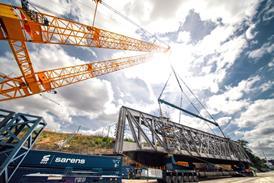March 30 - A sharp decline in transit shipping via the Northern Sea Route (NSR) in the past two years indicates a loss of interest from international shippers, suggests Platts.
While Russia is considering boosting cargo turnover via the Arctic route that links Europe and Asia, Platts states that international shipping via the passage started rapidly shrinking in 2014, falling by 75 percent year-on-year to 274,103 tonnes.
This decline coincided with the "dramatic cooling" of relationships between Russia and the West over Ukraine, noted Platts, with sanctions casting doubts over the development of hydrocarbon projects in Russia's Arctic.
In 2015, transited cargoes fell by a further 86 percent to 39,586 tonnes, with market players attributing the reduction to a number of different factors.
However, Russia is still actively developing the route as it plans to transport crude and LNG to international markets, as well as turn the NSR into a major international trading route for energy-related cargoes.
Although the Arctic lane is a quicker option than many southern routes for trade between Europe and Asia, many still have concerns about its commercial viability due to harsh climate conditions and the temperamental ice situation.
Platts notes that the dramatic drop in transit sailing via the NSR does not spell an end to the ambitious project to develop the route into a well-established shipping lane, with domestic cargo turnover in the area rising 37 percent year-on-year in 2015, supported mainly by accelerated work on the construction of the Yamal LNG plant and the Port of Sabetta.
There have also been suggestions that a major crude oil hub could be built near the Port of Sabetta in the future, while a new pipeline scheduled to link fields in northern Siberia with Russia's trunk pipeline network could be extended to the Yamal Peninsula - both of which could require a number of project cargo shipments via the Arctic trade lane.
www.platts.com
















